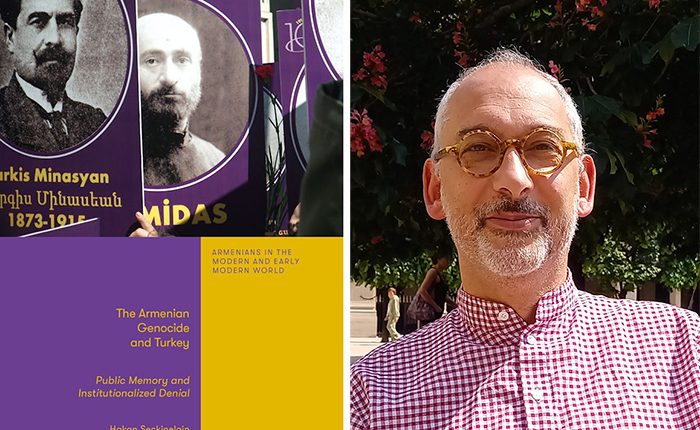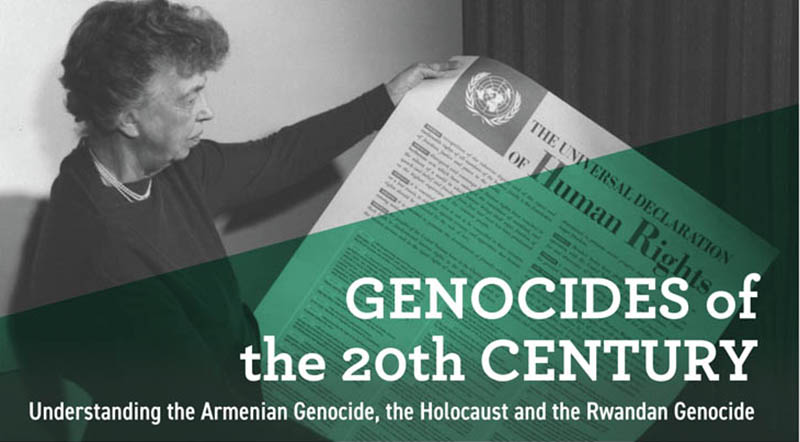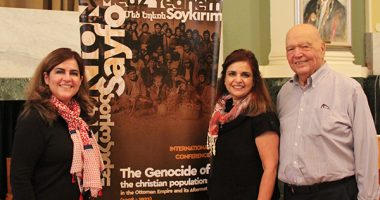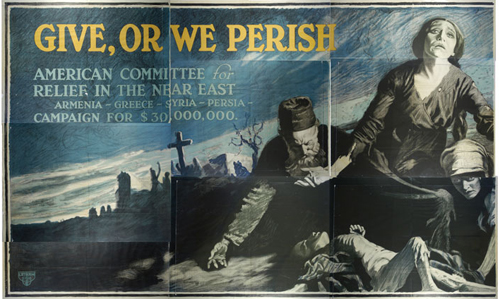LONDON/NEW YORK—I. B.Tauris, an imprint of Bloomsbury Publishing, has announced the publication of Dr. Hakan Seckinelgin’s book The Armenian Genocide and Turkey: Public Memory and Institutionalized Denial. The book is part of the series, edited by Bedross Der Matossian (University of Nebraska, Lincoln) and published by I.B. Tauris, an imprint of Bloomsbury Publishing UK.
In this book, Hakan Seckinelgin investigates the mechanisms by which denial of the events of 1915 are reproduced in official discourse and the effect this has on Turkish citizens. Examining state education, media discourse, academic publications, as well as public events debating the Armenian genocide, the book argues that, at the public level, there exists a ‘grammar’ or ‘repertoire’ of denial in Turkey that regulates how the issue can be publicly conceptualized and understood. The book’s careful analysis examines the way that knowledge about the genocide is censored in Turkey, from the language that must be used to publicly discuss it to the complex way in which selective knowledge and erased history are reproduced from 1915 and subsequent generations until today. It argues that denialism has become essential to a certain kind of Turkish national identity and belonging – and suggests ways in which this relationship can be unpicked in the future.
Seckinelgin commented on the book, saying: “This research project stems from a paradoxical realization: while many in Turkish public feel comfortable in denying the 1915 Armenian genocide, there is a significant lack of knowledge about Armenian lives before (or immediately after) 1915 in Turkey. I realized that there is a kind of intergenerational knowledge claim based on national citizenship at work here. People in the Turkish public deny the 1915 genocide as members of a community that has constructed and imagined an appropriate past for itself. This revealed a process of intergenerational knowledge claims through which genocide is denied. I here focused on the nature of the denialist knowledge claims that appear in public discussions. Thus, the book has a distinctive entry point to its analyses; rather than focusing on the historical discussion, it begins from the present to unpack the conditions of denial. In this way, I explore conditions for reproducing the present institutionalized denialism.” Seckinelgin also focuses on several mechanisms that make such a reproduction possible. In particular, the process is not only about controlling available public knowledge of the past, but it also aims to control how far the public should have empathy towards those who are constructed as enemies, that is, those who make ‘us’ insecure in different ways. He continued, “In the analysis, I find that the language of ahistorical insecurity, to a categorical other, is used as a master narrative that stops the possibility of thinking about living with others and prevents thinking about conditions of cohabitation without silencing. The wider aim is to reveal mechanisms that maintain a public denial of the Armenian genocide in Turkey, to open a possibility of thinking differently from what is currently taken as public knowledge.”
“This is an excellent book that demonstrates the extent to which the denial of the Armenian genocide is embedded within Turkish identity,” said Der Matossian, the editor of the series. “Seckinelgin demonstrates the multifaceted mechanisms employed by the Turkish state in denying the Armenian Genocide as an official policy. His theoretical approach and analytical skills demonstrate a sophisticated web of denial implemented by an unrepented state,” he concluded.
Review
“This excellent book analyzes the significance of collective remembering and forgetting in modern Turkey; state and government actors employ manufactured public memories in social media and education to produce and maintain the denialist public discourse on the 1915 events.” Fatma Müge Göçek, University of Michigan, Ann Arbor
Hakan Seckinelgin is an Associate Professor/Reader in International Social Policy at the Department of Social Policy, LSE. He is trained as an international political theorist. His work focuses on the epistemology and politics of international social policy by engaging with people’s lives in different contexts. He is particularly interested in understanding how we think about policy processes by first thinking about the problems experienced in the everyday lives of those who are supposed to benefit from the policies targeting them. He published widely, including several books on international policy and HIV/AIDS, including The Politics of Global AIDS: Institutionalization of Solidarity, Exclusion of Context (Springer 2017). He was the editor-in- Chief of the Journal of Civil Society.
Copies of The Armenian Genocide and Turkey: Public Memory and Institutionalized Denial are available for purchase from the Bloomsbury Press website.










